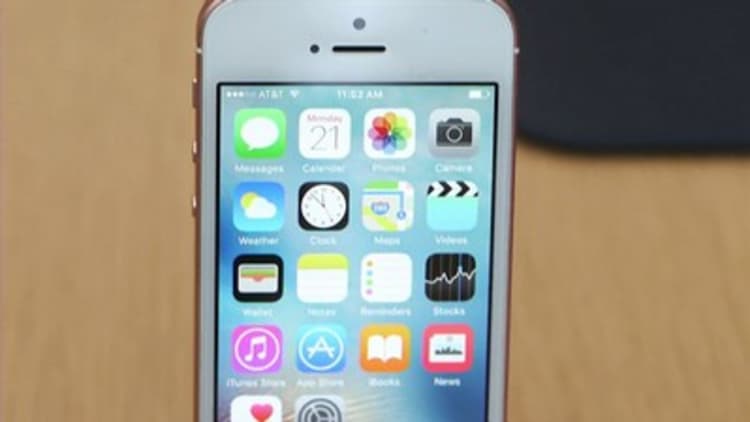
The man behind some of your favorite sleep features on Apple devices has left the company to focus on a new start-up focused on tracking sleep.
In 2014, sleep researcher Roy Raymann joined Apple's growing health team from Philips Research to focus on using mobile technology to track sleep and improve sleep quality.
During his three-year tenure, he helped develop Night Shift, a tool for the Mac that shifts display colors to the warmer end of the spectrum after dark, and the bedtime feature in iOS 10 that reminds users when to go to bed and tracks sleep habits. He also worked on Apple's HealthKit, which serves as a centralized system to store health information, including sleep data.
"What you see at Apple is a genuine passion for everything related to health, and it's not exclusive to fitness," Raymann told CNBC.
Last month, Raymann left the company to head up a start-up called SleepScore Labs. He told CNBC one thing he was excited about was more networking with fellow sleep professionals. "Apple is a little more inward focused," he said. "I was intrigued to be part of a fully dedicated team."
Sleep-monitoring technology is a huge potential market for Apple and other technology companies. An estimated 50 to 70 million US adults have sleep or wakefulness disorders, according to the CDC, and millions more intermittent experience periods when they suffer with sleep.
A variety of new apps and devices have emerged, claiming to track sleep and provide insights in how users can feel more rested. Some of these are of backed by more evidence than others, said Raymann.
Among the highest-quality, according to Raymann, is his new venture. The startup was initially developed by Mehmet Oz, the physician and television personality, and ResMed, a medical device maker. SleepScore's $129.99 sleep sensor integrates with any platform, including iOS and Android.
It works by tracking the user's sleep relative to others of a similar age and gender, and then provides advice about how to improve sleep quality.
"For consumers, it's not that easy to have insight into what's happening with their sleep," said Raymann. "It's not just about the duration, but also timing and consistency."
Raymann said it's not advisable to draw very broad generalizations about sleep, such as a 10,000 steps goal for activity, as solutions will differ for each person. Some users might need to work towards an earlier bedtime, while others should avoid caffeine after noon.
Raymann said he will focus on recommendations for users, so they can take steps to improve sleep quality. He also said that a lot of the sleep trackers on the market aren't "particularly accurate," but that SleepScore Labs is backed by a "long track record of data."
He declined to comment on Apple's acquisition of Beddit, a sleep monitoring device.
Correction: The company's name was misspelled in an earlier version of this article due to an editing error. It is SleepScore Labs.


